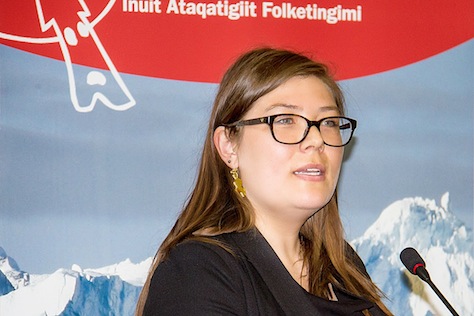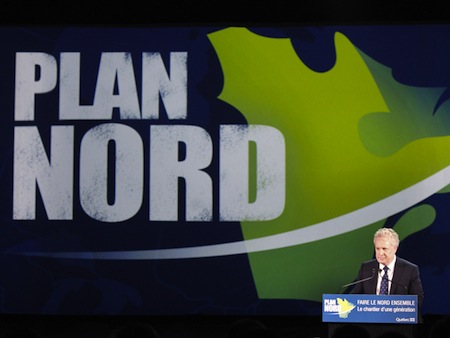It may seem quaint that misuse of just over €14,000 in personal and travel expenses could bring down a government, but that’s exactly why Greenlanders are going to the polls just 19 months after their last election — after a sudden September 30 scandal caused prime minister Aleqa Hammond to step down.![]()
![]()
Hammond, who stepped away from frontline politics two months ago, is sitting on the sidelines of Friday’s election, watching as her former deputy, acting prime minister Kim Kielsen tries to steer the governing Siumut (Forward), a center-left, moderately pro-sovereignty party, to a longer term in office.
* * * * *
RELATED: Greenland’s election a case study in climate change, sovereignty, China, the EU and the Arctic’s future [March 2013]
* * * * *
Amazingly, Kielsen has a real shot at winning Friday’s election, notwithstanding the fact that Hammond’s corruption woes are the immediately cause of the election. In part, that’s because Kielsen has run a humble campaign focused on his own reputation for honesty and appealing to traditional Greenlandic voters.
In part, it’s also because the chief opposition party, Inuit Ataqatigiit (‘Community of the People’), has pledged to slow down the government’s push to open up large parts of Greenland to international mining interests hoping to unlock the potential mineral wealth of the Arctic north. Its candidate for premier, Sara Olsvig (pictured above), entered politics only in 2011 as one of two members of Denmark’s parliament, the Folketing, and she is currently head of the Folketing‘s Arctic committee. Though she seemed a lock to become Greenland’s next premier when Hammond’s government collapsed, her hesitation with respect to Greenlandic mineral and oil development has, in part, stalled her campaign.
Inuit Ataqatigiit is even more leftist than Siumut, and it is stridently more in favor of Greenlandic independence, but it has also tried to balance the frothy excitement of a mining boom against the concept of sustainable development. That’s especially true in an era of climate change and melting glaciers in Greenland.
In one sense, you can think of the 2014 Greenlandic election as a choice between two imperfect ideals:
- a more conservative approach to autonomy coupled with a more aggressive approach to the kind of mining and development that could give Greenland the economic basis for independence in the decades to come; or
- a more aggressive approach to independence with a more hesitant approach to economic development that prioritizes the risks to the environment, local communities and other factors.
Traditionally, Siumut has controlled Greenlandic government since 1979, when Greenland, an ‘autonomous country’ within the Kingdom of Denmark, won self-rule, though the party only recently retook control of government in the March 2013 elections, following a four-year Inuit Ataqatigiit government led by local musician Kuupik Kleist.
No matter which party wins the November 28 election, the vote is unlikely to settle definitively either Greenland’s debate over the nature and pace of mining and development or its status vis-à-vis Denmark. That’s most of all because no one yet knows whether Greenland harbors the kind of oil or mineral wealth that could allow it to become a viable independent nation-state. The country currently receives a subsidy grant of around $600 million from the Danish government (and it still posted a budget deficit last year).
Continue reading Uranium, sovereignty and corruption headline Greenland vote


